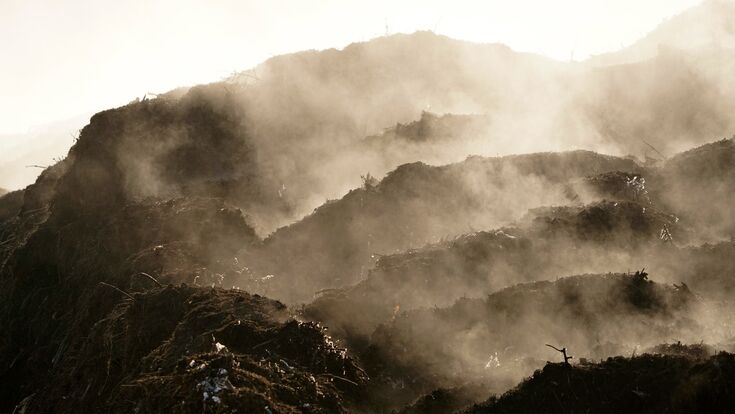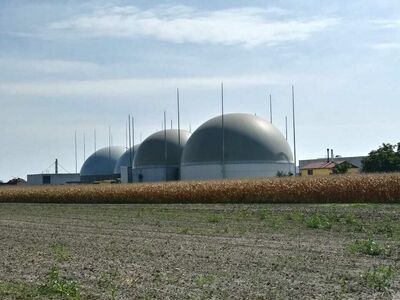Organic waste : What energy might biowaste provide for a regenerative life cycle?

The organic residues from man-made landscapes have gained their potential to nourish soil biota, plants, animals and humans from their photosynthetic capacity to transform sunlight and CO2 into sugar and also to the manifold well-organised organic compounds of living organisms. These compounds may altogether be interpreted in energy terms when undergoing complete decay via a biological or fire-based burning process. This follows the basic principle of entropy.
Our modern societies, having entered the Anthropocene and thus having evolved towards the co-creator of our natural environment (including the atmosphere!), come to the point of ‘no return’ in accepting our full responsibility for directing the huge masses of these manifold residues in the best way to the benefit of our natural resources, with the aim of contributing to local and regional welfare and crisis resilience.
Like our content? Subscribe to our newsletters!
What role does biowaste play in a regenerative culture?
With this, we may emphasise the fact that the fertile soil with its humus compounds as a life-carrier delivers the key, the starting point when approaching the question in the title: what role should biowaste play in promoting a regenerative (agricultural/landscape/garden) culture?
Massive soil, i.e. humus degradation, is merely man-made, and – no doubt – to a great extent induced by the industrialisation of agriculture, defining soil as a dead container to be filled with synthetic fertiliser and loaded with pesticides. This misconception is now evidenced by numerous studies demonstrating that organic and humus conservation farming systems deliver a significantly higher energy efficiency and a lower environmental/carbon footprint.
And again, humus is the key criterion – and compost from bio-waste, be it from plant tissue or manure, is the energy source for supporting the regenerative humus cycle within a concept that addresses soil as a biodiverse living entity.
More on the topic: Heat Recovery from Compost

Humus is the key criterion – and compost from bio-waste, be it from plant tissue or manure, is the energy source for supporting the regenerative humus cycle within a concept that addresses soil as a biodiverse living entity.
Twenty years ago, anaerobic digestion entered the scene with the promise to contribute prominently to mitigating climate change and to significantly lower dependence on fossil-fuel-based energy sources. Mainly triggered by the gas crises driven by the war in Ukraine, shifting energy industries towards renewable sources became a top priority in environmental policies. The fact that without a massive change in our lifestyles, i.e. by reducing our energy consumption, we will not achieve what we call a sustainable and peaceful co-existence seems to be consciously ignored.
Hence, we are challenged to make a decision about using the organic carbon sources for the production of energy from biogas or
for well-matured compost to prominently build up humus complexes, the basis of natural soil fertility in our soils. The latter is what soil evolution teaches us.
Further reading: A new green Energy Source
Decentralised composting
In Austria, this humus path has been prominently followed since the early 1990s by implementing on-farm decentralised composting schemes. To date it has been a unique success story, demonstrating transparency and commitment on the part of all those involved and showing a strong link to organic production.
The Decentralised Bio-waste Recycling study tour, which will be held in Austria from 4 to 8 September 2023, will demonstrate the entire chain from separate collection towards compost application and markets, but will also show an example where anaerobic digestion may have its rightful place within a cooperative regional solution.
You can register here!


